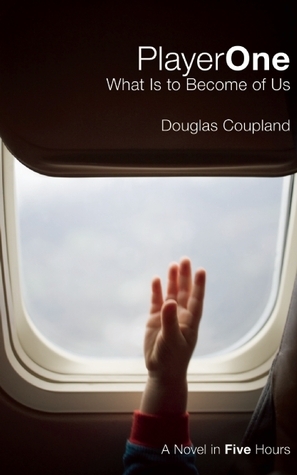What do you think?
Rate this book


256 pages, Paperback
First published September 25, 2010
I think if people had real courage, they'd wear their Halloween costume every day of the year. At the very least, you'd make a lot more friends more quickly. Like, 'Hey, I like togas, too!' Or, 'Star Trek? I'm in.' Your costume would be a means of filtering down to the people you'd probably like the most.
Karen has noticed that young people no longer seem to care if their lives are stories. Not Casey, and not that little pervert on the flight earlier that afternoon. He'd probably no more view his life as a story than he would view his life as that of a sea cucumber. He and Casey inhabit a world of screen grabs, website hits, and precisely tabulated numbers of friends and enemies.
And we're all waiting for It now, aren't we? Good old 'It'—the It who rains, the It we mean when we ask what time is It? I suppose It is the arrival of the Sentience. The arrival of the metamind that is us and yet much more than us. It is the Sentience that will eclipse us, that will encourage us, and shame us and indulge us. It is out there waiting. I'm certainly waiting—it's why I'm here, talking to you before I enter the New Normal, too.
Here's to all of us reaching out our hands to other people everywhere, reaching out to pull them from the icebergs on which they stand frozen, to pull them through the burning hoops of fire that frighten them, to help them climb over the brick walls that block their paths. Let us reach out to shock and captivate people into new ways of thinking.
There's a teenage boy across the aisle in the row ahead of Karen who has glanced her way a few times on this flight. Karen is flattered to think she might be considered hot—albeit a "hot mom"—but then she also knows that this horny kid probably has some kind of sin-detecting hand-held gadget lurking in his shirt pocket, lying in wait for Karen to undo more buttons or pick her nose or perform any other silly act that was formerly considered private, a silly act that will ultimately appear on a gag-photo website alongside JPEGs of baseball team portraits in which one member is actively vomiting, or on a movie site where teenagers, utterly unaware of the notion of cause and effect, jump from suburban rooftops onto trampolines, whereupon they die.